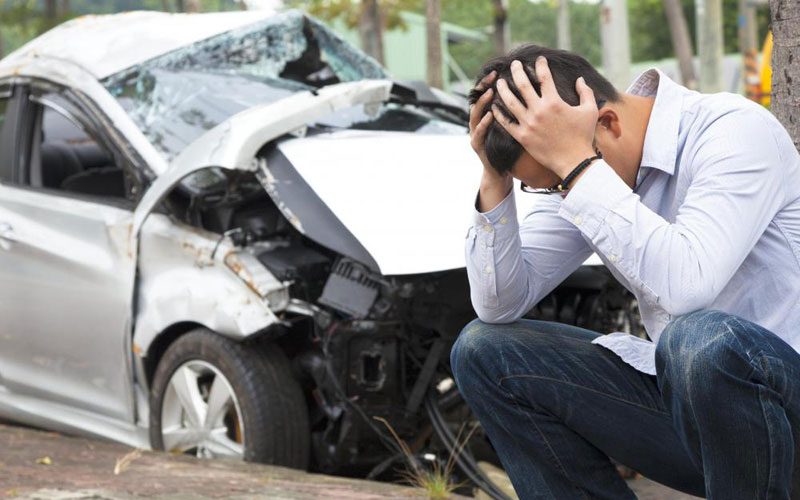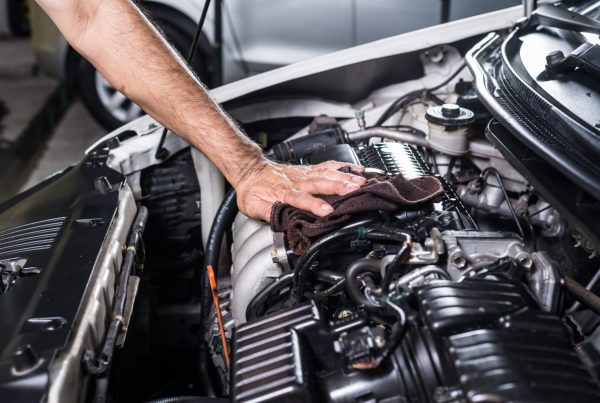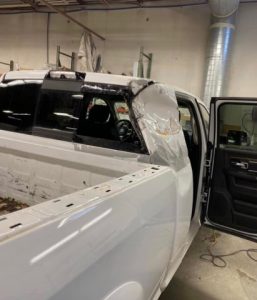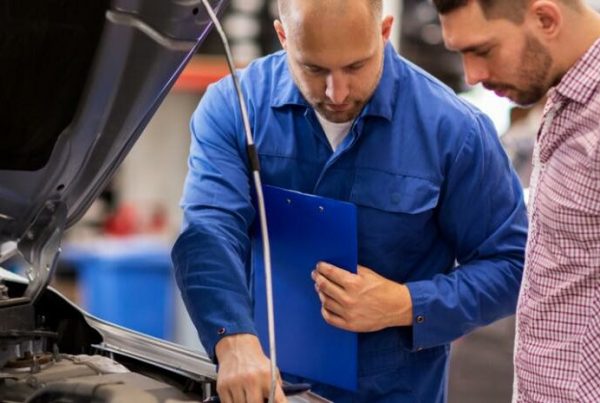Let’s face it: the only thing worse than getting in a car accident is when your car is totaled as a result of that accident. Nobody plans on getting in an accident or thinks as they drive their car, “this is the last day I’ll be driving this thing.”
In the collision repair industry, a totaled car is referred to as a “total loss,” meaning that the car is unable to be repaired. When people are facing the potential of their car being totaled, they might still owe money on the car. In fact, they might even have negative equity, making the situation worse than what it is. Either way, what comes after the accident is almost worse than the accident itself. You have to deal with the pressure from your insurance company and their claims to possible injuries. Hearing from an auto body shop that your car is a total loss feels like the worst news you can receive.
Believe it not, there’s actually a positive side to your car being totaled and we’re here to discuss that. Below, we breakdown how your car is considered a total loss:
A car with typically gets totaled when the repair cost is 70% or higher than the Actual Cash Value (aka ACV) of the car. For example, if your car is worth $10,000 and the repair estimate is $7,000, your insurance company will total the car even though the repair costs less than the replacement.
We know this can be a confusing time for drivers, especially when you’ve probably heard about vehicles being totaled when they still have value. What’s important to note is even if the repair cost is less than the ACV, it may not make sense to repair the car. This is especially so based on the
This can be a confusing process, especially when you’ve heard stories of automobiles that still function being totaled despite a repair being 75% of the ACV. However, even if the cost of repair is less than the value of the car, it may not make sense to repair the vehicle, depending on the threshold percentage.
Let’s examine the age of cars and how that plays a role in determining if your car would be totaled following a collision:
But why does my car have to be totaled, you’re probably wondering. Surely, there’s still some value left, right? Let’s break it down even more by age of vehicles to better determine if the car will total or not:
Cars aged 1-3 years
As always, the answer depends on how bad the damage is, though most likely this car will not total. The average repair cost of a year old vehicle is a little over $3,000, valuing over $25,000. As a result, less than 7% of these vehicles are considered a total loss.
Cars aged 3-5 years
Here’s where mileage and condition start to play a contributing factor, along with the severity of the damage. Your insurance adjuster will appraise the vehicle based on the condition it was before the accident. If your vehicle had excessive wear, high mileage, or previous damage that wasn’t repaired, the ACV would be lower. This will bring you closer in range to the repair costs. Higher priced luxury vehicles, trucks, and SUVs will probably make the “repair it” list. However, lower-priced compact cars and specific sedans might get totaled, even if they’re only 5 years old.
Cars 6 years and older
A car that is 6 years or older will most likely total. Any car that is between 10-15 years has an average repair cost of $2,000 and a value of just a little over $6,000. This call plays a key role in determining the threshold of the vehicle. The good news is for cars this old are usually paid off, so you will end up getting a nice sum to put as a down payment on your next vehicle.
Total Loss Threshold
This is where something known as a “total-loss threshold” comes into consideration. It differs based on wherever you’re located, as 22 states use a total loss formula (TLF) instead of a specific threshold percentage. According to carinsurance.com, a total-loss threshold is, “the point where an insurer must legally declare a car totaled and apply for a salvage title.”
Both Pennsylvania and New Jersey are two of the 22 states that don’t give an exact threshold percentage, but instead use a total loss formula (TLF), where insurers will evaluate the cost of repairs plus the vehicle scrap value. If the number is lower than the ACV of your car, insurance may decide to repair it. However, if the amount is equivalent to or higher than the ACV before the accident, then your vehicle will be totaled.
The Silver Lining
If you find out that your car is a total loss, be thankful because you wouldn’t want that car back. Even though the decision is often based on what numbers work best for the insurance company, body shops will often tell you that you wouldn’t want your car back after it’s had a ton of repair work done to it. Shocked to hear that? We may make a living on repairing your car, but we also want our customers safe.
Today’s cars are incredibly sophisticated and complex machines full of multiple high strength steels, computers, sensors, and cameras. They are also built to transfer crash energy away from the occupants, and this can cause damage in areas not even included in the accident. Even though we could probably repair any car that comes into our shop, there are some cases where a repair simply shouldn’t happen.
Your car’s manufacturer instructs us on how your vehicle should be repaired, having safety and quality be the top priorities. If your accident involved areas that can’t be joined or welded or rivet bonded safely, then the vehicle should be totaled.
All in all, if a body shop tells you it’s a good thing your car is totaled, this is the truth for both your safety and any potential future problems that might occur.
Where In Pennsylvania Should I Get My Car Repaired After An Accident?
We at Rocco’s Collison Centers know that you have many choices when looking for a car repair shop, especially in the Philadelphia and Southern New Jersey areas.
The problem with high production body shops isn’t just here in Pennsylvania and New Jersey but across the country. We are writing about this because we feel you deserve the highest quality repair out there for your car. No substitutions. No short cuts. Only the best.
We aim to show you why we are the best out there, which is why we are dedicated to giving you the best repair possible for your car!
We have six different locations across Philadelphia and Southern New Jersey. We invite you to see for yourself why Rocco’s is the best out there! Feel free to give us a call at anytime at (888)-9-ROCCOS. Or to schedule an appointment or to call any of our locations directly, click here.
We look forward to hearing from you!




